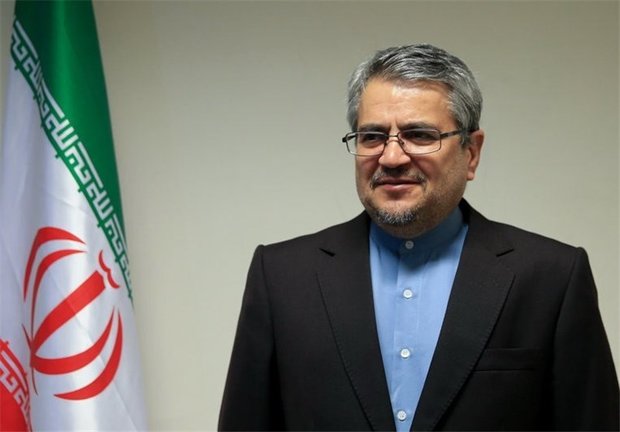Iran’s Permanent Representative to the United Nations, Gholamali Khoshroo, addressed a UN Security Council session on “Maintenance of International Peace and Security: Strengthening Multilateralism and the Role of the United Nations” in New York on November 9.
He stressed that “international law and effective international institutions with universal membership, like the UN, are the core elements of multilateralism,” adding that “to preserve and strengthen multilateralism, the United Nations should act decisively.”
He also added that the JCPOA’s conclusion and Iran’s compliance with its commitments, as confirmed by 12 IAEA reports, is Iran’s contribution to multilateralism, adding that Iran will continue implementing its commitments proportionate to the benefits it receives.
The following is the full text of his address:
Mr. President,
I sincerely thank you for convening this meeting. I also thank you and the Secretary-General for your valuable input and align myself with the NAM statement.
This is a timely debate because as the UNSG puts it, “multilateralism is under fire precisely when we need it most”.
What is multilateralism? Why and how should we promote it?
Multilateralism is an approach to address global challenges collectively, pursue international common goals and goods cooperatively, uphold international law solemnly, and apply it to all nations equally.
True multilateralism is founded on inclusion instead of exclusion; cooperation in place of confrontation; equality rather than inequality; rule of law instead of rule of power; pursuing the common goods and long-term objectives of all States, not short-sighted goals of only one State; and solving differences peacefully and justly, not violently and unfairly.
To solve global problems, multilateralism is not only an option, it is the only option. It is an option, but not optional. It is a must, as there is no alternative; as certain transnational issues do not know boundaries and thus cannot be managed with one or certain countries alone, no matter how powerful they are. Climate change is a perfect example.
Therefore, when multilateralism is challenged by bold illegal unilateral actions, we must preserve it; address its threats; and promote its relevance and effectiveness. This is essential for rule-based international order.
International law and effective international institutions with universal membership, like the UN, are the core elements of multilateralism.
Therefore, to preserve and strengthen multilateralism, the United Nations should act decisively.
This is how we can “make the United Nations relevant to all people”, which was the theme of the UNGA’s 73rd session where many world leaders appealed for supporting multilateralism and strengthening the UN’s role.
Incidentally, we fully support NAM’s proposal to designate an “International Day of Multilateralism and Diplomacy for Peace”.
We need such an annual forum to discuss emerging challenges to multilateralism; the latest of which is the doctrine of “withdrawal from international instruments and institutions” of a member of this Council.
This, among others, has resulted in its withdrawal from the Human Rights Council, UNESCO, Paris Agreement, and the JCPOA.
The JCPOA is the result of intensive negotiations to peacefully solve a manufactured crisis. It was endorsed unanimously by the Council’s resolution 2231 drafted by the US.
The US withdrawal from the JCPOA and re-imposition of unilateral sanctions -- four days ago -- appallingly violates resolution 2231 and openly defies international law.
For the first time in the UN history, the United States – a permanent member of this Council with veto power – is penalizing nations across the globe not for violating a Security Council resolution, rather, for abiding by it.
The world should not allow the United States to pursue its unilateral, arrogant and self-centered policy which focuses on continuing to reorder the world order to be founded on power, not law.
Additionally, the United States shamefully avoids implementing the recent ICJ order issued unanimously asking for the immediate removal of the US sanctions.
The JCPOA’s conclusion and Iran’s compliance with its commitments, as confirmed by 12 IAEA reports, is our contribution to multilateralism. This was commended globally. Iran will continue implementing its commitments proportionate to the benefits it receives.
The world community should strongly condemn and reject the US sanctions, not only in word but also in deed. This will be an action of pragmatic support to international law and multilateralism.
I thank you, Mr. President.
MS/PR

























Your Comment